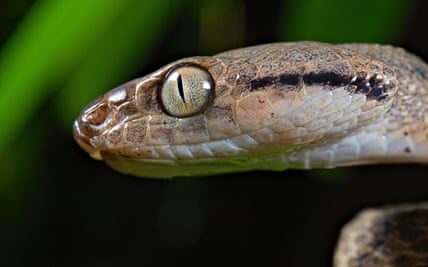A recent survey discovered that over half of female students in Britain struggle with confidence when learning mathematics.

A report shows that over 50% of girls in Britain lack confidence when it comes to learning math, and 40% feel insecure about science. This highlights a concerning gender gap in confidence levels among students in schools.
According to Teach First, a charity focused on education, a study showed that 54% of girls were not confident in math, while only 41% of boys lacked confidence. The gap was more significant in science, with 43% of girls lacking confidence compared to 26% of boys.
The results were derived from a survey conducted by YouGov with 1,000 individuals between the ages of 11 and 16, in anticipation of the upcoming International Day of Women and Girls in Science on Sunday.
Although they may have less confidence, female students tend to excel over male students in Stem subjects (science, technology, engineering, and mathematics) at the GCSE level, with a greater number achieving top grades. However, a smaller percentage of girls continue to pursue these subjects at the A-level stage and enter careers in the Stem field.
The findings have raised concerns that inadequate gender representation will worsen the existing shortage of skilled workers in the Stem industry. Teach First is advocating for an increase in well-trained, expert educators to motivate and guide the upcoming generation towards these areas.
In the year 2020, the percentage of women in the STEM workforce in the UK was less than 30%. The IET has issued a warning about a shortage of over 173,000 workers, which is equivalent to an average of 10 vacant positions per business.
Teach First is urging for higher pay for trainee teachers in order to attract more Stem professionals to teach in challenging areas. This would help address the shortage of teachers, especially in the subjects of math, computing, and physics.
According to Amy Mitchell, the chief impact officer at Teach First, it is concerning that there is a lack of confidence among children in studying science and math, particularly among girls who are being left behind.
“Girls are just as capable as boys when it comes to maths and science, but this confidence gap poses a huge threat to the UK’s future, with Stem skills desperately needed to boost economic growth and to help tackle the major problems we face such as climate change.”
It is crucial to promptly increase the salaries of trainee teachers in order to encourage more individuals to pursue careers as Stem teachers. This is especially necessary in low-income regions, where the task of recruiting specialized teachers is even more challenging.
Sylvia Jolly, a science teacher at Robert Clack school in Dagenham, Essex who was trained by Teach First, stated that encouraging more girls to pursue Stem and excel in this field would greatly benefit all Stem scientists. This would ensure that the workforce is empowered to collaborate effectively.
A representative from the Department for Education (DfE) stated that bursaries of up to £30,000 were provided in order to incentivize the recruitment of highly skilled and talented teachers in the fields of science, technology, engineering, and math (Stem).
They stated that they are actively encouraging the pursuit of STEM subjects and striving to increase involvement, particularly among girls.
“We have allocated £100 million to enhance the teaching of computing and increase involvement in GCSE and A-level courses. Additionally, we have implemented specific initiatives to encourage girls and under-represented groups to pursue education in maths, physics, digital and technical fields.”
Furthermore, we are implementing the new Advanced British Standard (ABS) which mandates that all students in England must study some level of mathematics and English until they reach the age of 18.
Source: theguardian.com




